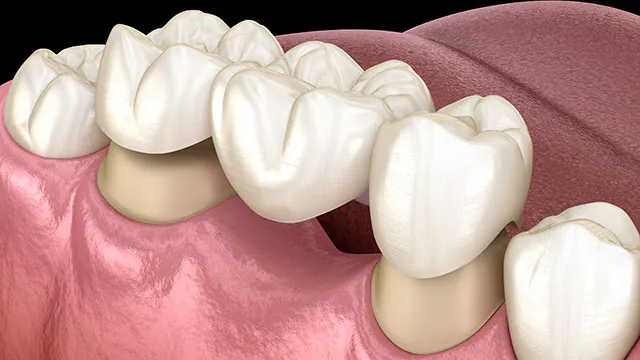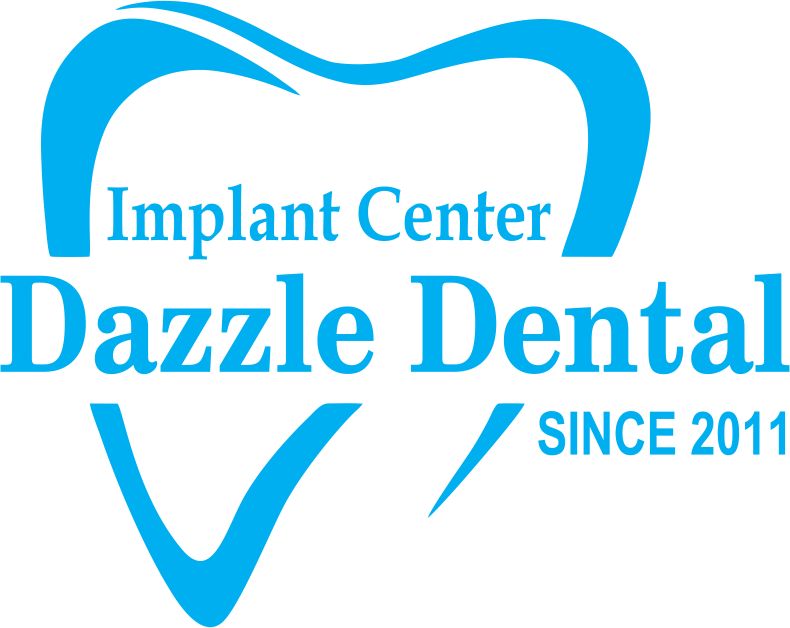Crown & Bridges

What are Dental Crown?
Dental crowns serve as protective caps for missing or fractured teeth, preserving their functionality and lifespan. Dental crowns are necessary in the following situations:
1. Protection and restoration: They safeguard a tooth from fracturing due to accidents or trauma.
2. Large filling replacement: When a tooth requires a restoration that is too large for a filling, a dental crown is used.
3. Implant coverage: Dental crowns are placed over dental implants to restore missing teeth.
4. Post-root canal treatment: They are used to restore and strengthen a tooth after undergoing root canal treatment.
5. Cosmetic enhancements: Crowns are utilized to cover discolored, misshaped, or poorly formed teeth, enhancing their appearance.
6. Bridge support: Dental crowns are essential when a dental bridge is required for replacing missing teeth.
Furthermore, dental crowns provide strength, shape, and size to the treated tooth, contributing to overall dental aesthetics. Delaying the placement of a recommended dental crown can potentially lead to severe tooth damage, necessitating extraction as a last resort. Moreover, not getting a dental crown can result in the wearing down and damage of adjacent teeth.


WHAT ARE THE DIFFERENT TYPES OF DENTAL CROWNS?
Dental crowns come in various materials, each offering distinct advantages. The types of dental crowns include:
1. Metal Crowns:
– Metal crowns, particularly gold crowns, provide long-term durability.
– They are resistant to biting and chewing forces, making them suitable for molars.
– These crowns have excellent strength and longevity, but their metallic appearance may make them less desirable for visible teeth.
2. Porcelain-Fused-to-Metal:
– Porcelain-fused-to-metal crowns offer a combination of aesthetics and strength.
– The inner portion of the crown is made of metal, providing durability, while the outer portion is made of porcelain, matching the color of natural teeth.
– They provide a natural appearance, making them suitable for visible teeth.
3. Ceramic Crowns:
– Ceramic crowns are a metal-free option that offers both strength and aesthetics.
– They blend seamlessly with the natural color of teeth, providing a more natural look.
– Ceramic crowns are suitable for both front and back teeth, as well as dental bridges.
– They eliminate the concerns of porcelain wearing down and metal visibility.
– However, they may not be recommended for molars, as the forces exerted during biting can potentially wear down the ceramic material.
Each type of dental crown has its own unique advantages, and the most suitable option depends on individual preferences, functional requirements, and the location of the tooth in need of a crown. Consulting with a dentist will help determine the best choice for your specific situation.
HOW MUCH DO DENTAL BRIDGES AND CROWNS COST?
The cost of dental bridges and crowns varies depending on the type of restoration chosen by the patient. For instance, an all-porcelain bridge typically has a higher cost compared to a metal bridge. However, dental bridges and crowns are generally considered to be affordable options for tooth restoration.
At Smylexl Dental clinics, patients have the option to pay the cost of the treatment in convenient installments, allowing for greater flexibility in managing expenses.


